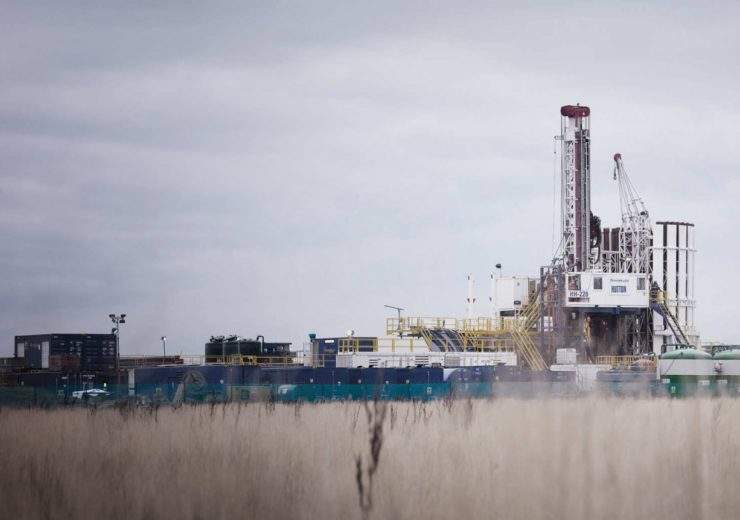The High Court has denied the request of an environmental campaigner to delay energy firm Cuadrilla's permission to proceed with its operation at Preston New Road, Lancashire, meaning fracking in the UK is set to go ahead for the first time since an incompleted frack in 2011

Cuadrilla's fracking site in Preese Hall, which was shut down after seismic activity (Credit: Cuadrilla)
A landmark ruling will allow fracking in the UK to go ahead tomorrow (13 October) after the High Court turned down an environmental campaigner’s claim to delay permission.
Mr Justice Supperstone denied Bob Dennett’s requested injunction against energy firm Cuadrilla’s planned operation to extract shale gas from the earth at its Preston New Road site in Lancashire.
The judge said: “I am satisfied that the claimant has failed to establish that there is a serious issue to be tried.
“Cuadrilla has gained all the necessary regulatory permissions required to proceed with its operation, with detailed assessments from the Environment Agency and the Lancashire County Council emergency services.
“For that reason alone I am denying the sought injunction.”

Permission granted for fracking in the UK
Hydraulic fracturing – or fracking – is a horizontal drilling process for extracting shale gas from deep underground by using a high-pressure injection of water and sand to create cracks in rock formations in order to release natural gas.
Industrialists say it will enable the UK to follow the US’ example in reversing imports to create its own supply of cheap energy resources, but environmentalists believe it could damage countrysides, contaminate water supplies and cause earthquakes.
Green campaigner Mr Dennett’s case rested on the claim that Cuadrilla’s assessment of its operation posing only “medium risk” was false, and that it in fact had the potential for “high risk”.
Mr Justice Supperstone was not satisfied there was sufficient evidence to support this however, citing its 16 inspections from the Environment Agency since the start of 2017 as reason enough to dismiss the application.
The judge also denied the anti-fracking campaigner’s request for a judicial review of the council’s emergency planning procedures concerning the Preston New Road facility.
He said: “This court finds that Lancashire County Council has conducted all necessary protocols with regard to procedure in the event of an emergency.
“The fire and police departments have reviewed Cuadrilla’s facility in great detail, and emergency briefings have been made available to schools in the area.
“On this basis, I am entirely satisfied that the claim formulated here is unarguable”.
Reaction to High Court ruling on fracking in the UK
Cuadrilla had intended to start its fracking operation on 12 October, but delayed the process in light of the planned hearing.
Reacting to the ruling, Cuadrilla CEO Francis Egan said: “We are delighted to be starting our hydraulic fracturing operations as planned.
“We are now commencing the final operational phase to evaluate the commercial potential for a new source of indigenous natural gas in Lancashire.
“If commercially recoverable this will displace costly imported gas, with lower emissions, significant economic benefit and better security of energy supply for the UK.”
Friends of the Earth fracking campaigner Jamie Peters added: “Today’s court ruling is sad news for local residents who’ve long fought against this dirty industry and the risks it poses to their environment and the climate.
“In a week in which the scale of action needed to stop climate chaos has dominated the headlines, it is simply wrong to be heralding the start of a new fossil-fuel industry.
“You can have fracking or you can deal with climate change – you can’t do both.”
Marc Willers, QC for Mr Dennett, requested additional time to seek expert review of Cuadrilla’s risk assessment after Mr Justice Supperstone made his ruling.
In response, Natalie Lieven, QC for Cuadrilla, said: “Any findings that could present a rational argument in this case would have to be so obvious as to have already been observed.
“Delaying permission in this case as per my learned friend’s request would be a waste of the court’s time.”
Although no complete fracks have previously been carried out in Britain, Cuadrilla did begin drilling operations in 2011 at its Preese Hall site near Blackpool in 2011.
But it halted fracking after it was linked with two earth tremors.


